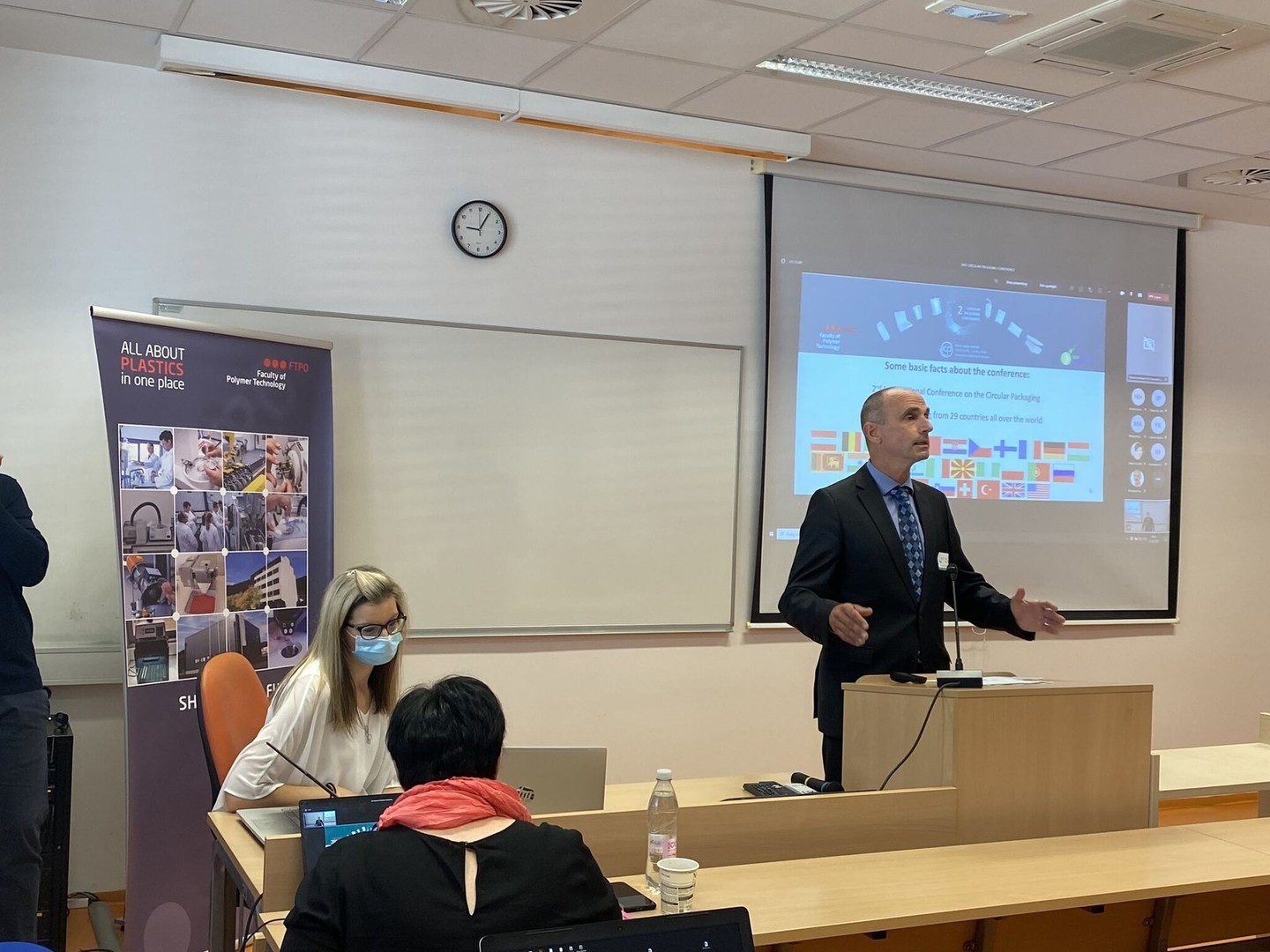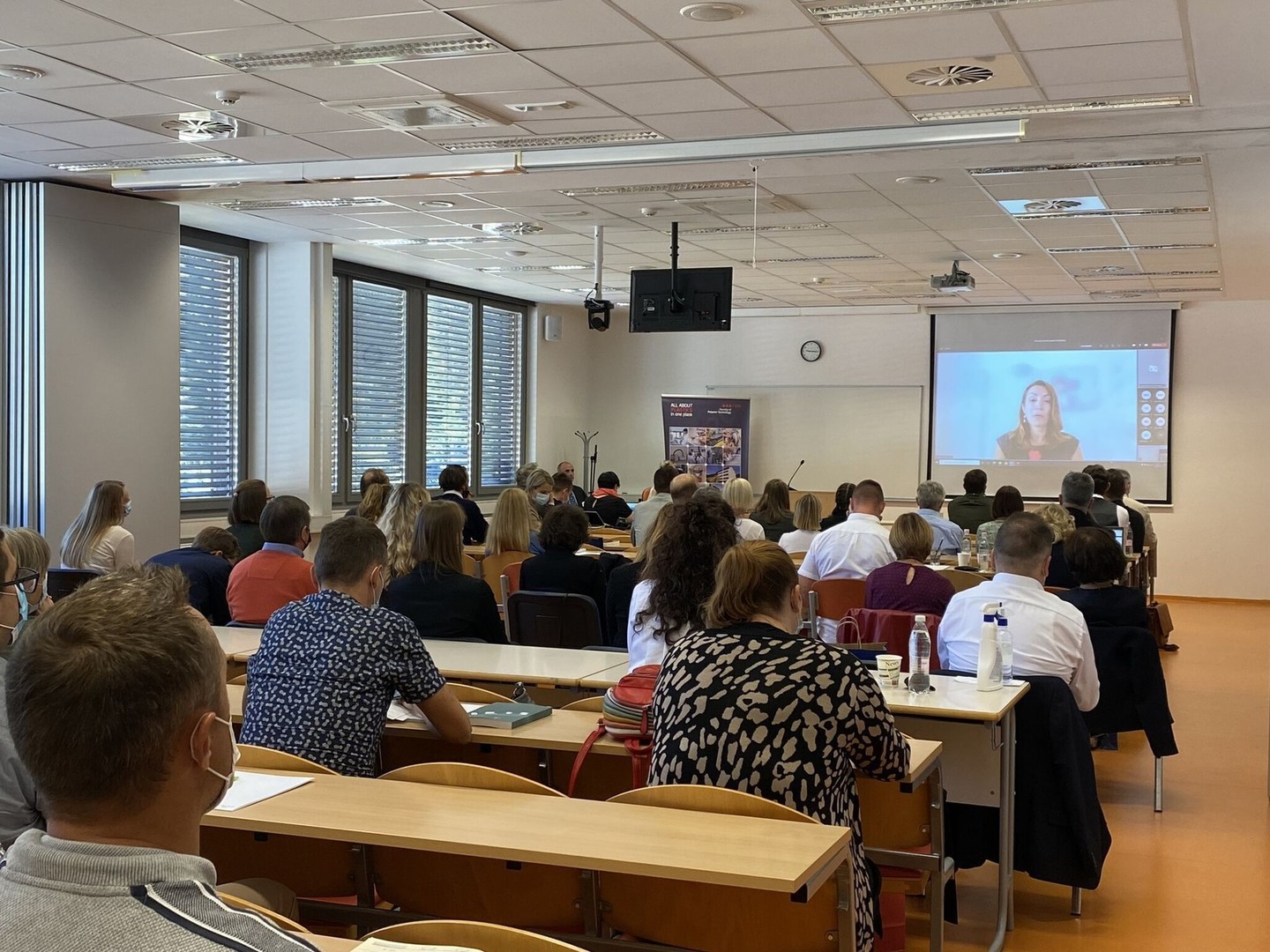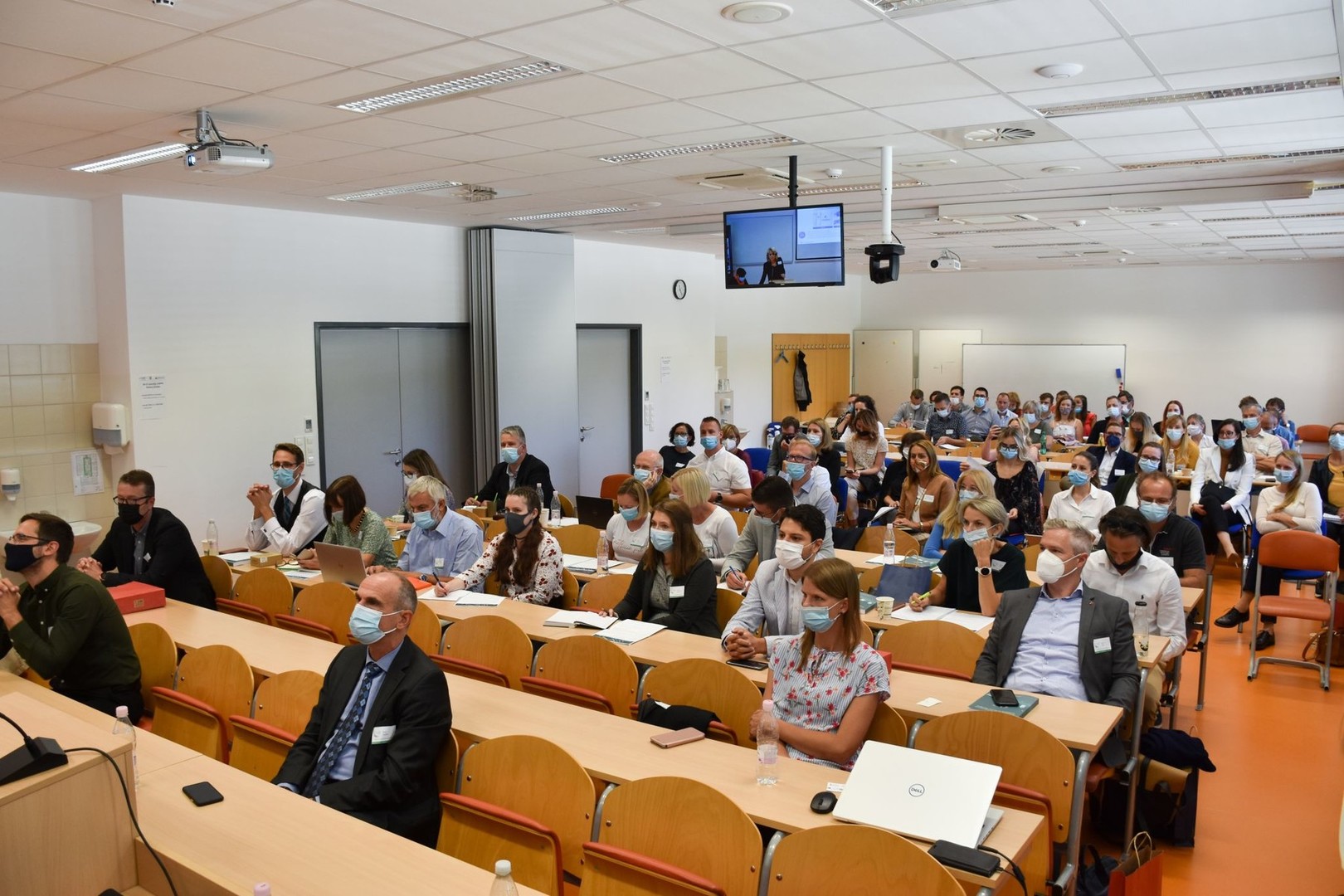2nd International Circular Packaging Conference
The 2nd Circular Packaging Conference took place during Thursday 9 and Friday 10 of September in Slovenj Gradec, Slovenia. The event was co-organized by the Institute of Pulp and Paper and the Faculty of Polymer Technology.
The event included international keynote speakers both from the industry and research sectors.
The main topics discussed were:
- New biobased packaging solutions that can help us in phasing out fossil-based plastics
- What systems can we develop to ensure circular packaging
- What business models do we need to tackle circularity
International companies showed their efforts in terms of sustainable and circular packaging manufacturing, recycling, and commercialization.
We need a systemic approach to tackle circularity for the packaging industry and this means open dialogue between the various stakeholders along the value chain.
Key takeaways from the conference:
- Complex packaging should be avoided as well as black packaging Let’s avoid too complex packaging
- More dialogue between recyclers and packaging producers is needed since the first ones are sometimes overlooked or not considered. This is especially true in the case of packaging seasonality and trends.
- Biobased solutions are being created and commercialized now but let’s do it with a systemic view of our context so that we develop solutions and not new problems.
- Let’s avoid misinformation, greenwashing and confusion of the consumer with too many words and concepts


